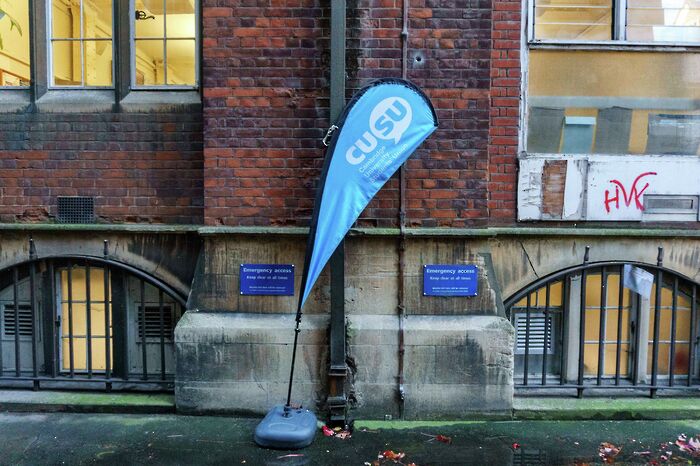
Hacks, assemble: CUSU and GU elections to commence next week
Nominations for the six sabbatical officers opened on Wednesday, and will close next Tuesday

With less than a week until campaigning officially begins, the race is on for aspiring student politicians and future BNOCs to assemble their campaigns and psych out the competition.
Nominations for candidates opened on Wednesday morning, and will close at 12pm next Tuesday, with official campaigning beginning on Thursday 28th of February. From next Thursday, candidates have just over a week to persuade the student body to vote for them, with voting taking place between Tuesday 5th March and Friday 8th March. The provisional results will be announced within two hours of the vote closing, with the official results coming at 10am on Monday 11th March.
Student Union elections are notoriously fast-paced and tension-filled, and this year looks to be no different. However, among the broader student body, engagement with CUSU elections has historically been low. Last year’s CUSU elections saw a 20.9% turnout, with 4,713 votes cast – a fall from the previous year’s record turnout of 22.5%, in which 4,967 students voted.
Students should expect a tight race: last year, current CUSU President Evie Aspinall triumphed over Siyang Wei and Connor Macdonald to claim the presidency, winning in the second-round run-off despite Wei winning the most first preference votes and leading in polls prior to the election. In one of the other two contested elections, Shadab Ahmed won by just over 100 votes to become Access and Funding Officer.
As the principle representative of CUSU, the President leads the sabbatical team, and is expected to oversee the long-term, strategic development of CUSU, and represent Cambridge students both within and outside the University. The other sabbatical roles up for election this term are the Education, Access and Funding, Welfare and Rights, Women’s and Disabled Students’ Officers. Each of these roles targets different aspects of the student experience at Cambridge, from pre-admissions access, to pastoral and academic support, along with issues specific to self-identifying women, non-binary and disabled students.
The Graduate Union President is also a role open for election. As a full-time position, they oversee the Graduate Union and sit on University Council.
Three positions were uncontested last year: Women's officer, Disabled Students' Officer and Education Officer. These positions are currently held by Claire Sosienski Smith, Emrys Travis and Matt Kite respectively. Although these people were the sole candidates for their respective positions, voters had the opportunity to vote to re-open nominations (RON) if they did not support the only candidate in the running.
In addition to directing academic provision and strategy, the Education Officer also serves as Vice-President of CUSU. One of the Women’s Officers main responsibilities is heading the CUSU Women’s Campaign (WomCam) and providing training for college women’s officers, while the Welfare role is shared between CUSU and the Graduate Union (GU) and forms part of the GU Executive.
The position of Disabled Students’ Officer, which is currently held by Emrys Travis, involves leading the CUSU Disabled Students Campaign, and aims to advance the accessibility of Cambridge for disabled students. The position was introduced in 2016 following a referendum.
It remains to be seen what policies and issues will be reflected in this year’s competition. Last year, Aspinall was brought to victory on a platform of student engagement, promising to make CUSU more accessible for the majority of students. Election platforms this year may serve as a verdict on the current CUSU sabbatical team’s success in keeping their campaign promises.
In additional to the sabbatical team, there are also several part-time roles up for election: the two Ethical Affairs Officers, the Graduate Union Disabled, Faculty Liaison, and Open Portfolio Officers, and the University Councillor, which do not require taking a year out of your studies. Last year saw no nominations for the roles of Ethical Affairs officers, so a by-election was held later in the term.
All of the sabbatical officers receive a full-time salary and are expected to devote the year exclusively to their role, beginning in July. The Welfare and Rights role is unusual in requiring students to be in at least the third year of an undergraduate degree before applying – most of the roles are open to second-year students who can take a year out before completing their final year.
Hustings will take place at 6pm on Friday 1st March and offer the candidates a chance to battle it out face-to-face, in front of the students they are hoping to represent. With voting opening (and closing) in less than two weeks, the race is on.
Note on Friday 22nd of February at 12.43: this article was corrected to reflect that the role of Graduate Union President is a full-time position

All the election news, in one place
Comprehensive news and analysis on the CUSU/GU elections, collected.
Visit Varsity’s Elections 2019 hub.
 News / Clare Hall spent over £500k opposing busway 24 December 2025
News / Clare Hall spent over £500k opposing busway 24 December 2025 Comment / The ‘class’ of Cambridge24 December 2025
Comment / The ‘class’ of Cambridge24 December 2025 News / Caius mourns its tree-mendous loss23 December 2025
News / Caius mourns its tree-mendous loss23 December 2025 Comment / Yes, I’m brown – but I have more important things to say22 December 2025
Comment / Yes, I’m brown – but I have more important things to say22 December 2025 News / Girton JCR publishes open letter expressing solidarity with Palestine25 December 2025
News / Girton JCR publishes open letter expressing solidarity with Palestine25 December 2025










